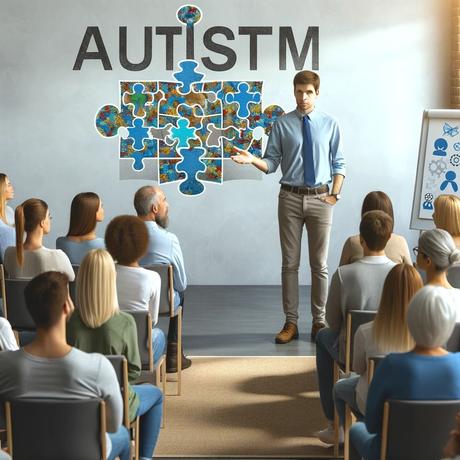
Introduction
Definition of Autism Spectrum Disorder (ASD)
Autism hong kong Spectrum Disorder (ASD) is a developmental disorder. It affects communication, behavior, and social interactions. People with ASD might have different ways of learning and reacting to the world around them. The symptoms can vary widely.
ASD is common. Globally, about 1 in 54 children are diagnosed with autism. Awareness is crucial. It helps in early diagnosis and intervention. This leads to better outcomes for those with ASD.
Importance of Autism Awareness
Awareness is vital. It leads to early diagnosis. Early diagnosis means early intervention. This can greatly improve the quality of life for individuals with ASD. Awareness also helps society understand and support autistic individuals better.
I. The State of Autism Awareness in Hong Kong
Historical Context
In the past, autism was not well understood in Hong Kong. There were many misconceptions. People often thought autism was a rare condition. Some believed it was caused by bad parenting. Over the years, perceptions have changed. More people now understand that autism is a medical condition. This shift is due to better education and information.
Current Awareness Levels
Surveys show that awareness of autism in Hong Kong has improved. More people recognize the symptoms of ASD. However, there is still a long way to go. Compared to other countries, Hong Kong’s awareness levels are lower. Continuous efforts are needed to improve understanding.
II. Challenges in Autism Awareness and Support
Social Stigma and Cultural Barriers
Mental health issues are often stigmatized in Hong Kong. Cultural attitudes towards disabilities can be negative. This affects how people perceive autism. Many families feel ashamed to seek help. This stigma makes it hard for autistic individuals to get the support they need.
Lack of Professional Training and Resources
There is a shortage of trained professionals in Hong Kong. Many doctors and therapists lack proper training in ASD. Resources and facilities for autism support are limited. This makes it difficult for families to find adequate care.
Educational Challenges
Including autistic children in mainstream schools is challenging. There are not enough special education programs. The quality of these programs varies. Many schools lack the resources to support autistic students properly.
Healthcare System Limitations
Diagnosis and intervention for autism can be delayed. The healthcare system is not always accessible. Services can be expensive. This makes it hard for families to afford the necessary care.
Support for Families
Families face many challenges in caring for autistic members. Support networks and services are limited. Many families struggle to find the help they need.
III. Progress and Initiatives
Government Policies and Support Programs
The Hong Kong government has started to take action. There are initiatives to support autism. Funding and policy changes are improving autism care. These efforts are a step in the right direction.
Non-Governmental Organizations (NGOs) and Advocacy Groups
NGOs play a big role in raising awareness. They provide much-needed support. Many NGOs have success stories. Their projects have made a significant impact on the community.
Educational Reforms and Inclusion Efforts
The education system is slowly changing. There are efforts to accommodate autistic students. While there have been successes, challenges remain. Inclusive education is still a work in progress.
Healthcare Improvements
Diagnostic techniques are improving. Early intervention is becoming more common. There are initiatives to train more healthcare professionals in autism care. These advancements are promising.
Community-Based Programs and Awareness Campaigns
Community initiatives are increasing awareness. Successful campaigns have helped change perceptions. Case studies show the positive impact of these efforts.
IV. Personal Stories and Case Studies
Experiences of Individuals with Autism
Personal stories are powerful. Autistic individuals share their challenges and triumphs. These narratives highlight their daily lives and struggles.
Family Perspectives
Families also share their experiences. They talk about coping mechanisms and support systems. These stories provide insight into the family’s journey.
Success Stories
There are many successful individuals with autism. Their stories are inspirational. They show that with the right support, autistic individuals can achieve great things.
V. The Road Ahead: Future Directions for Autism Awareness in Hong Kong
Goals for the Future
There are clear goals for improving autism awareness. Short-term goals include better education and resources. Long-term goals focus on societal acceptance and inclusion.
Policy Recommendations
Policy changes are needed. More funding and resources should be directed towards autism support. Better policies can greatly improve the lives of autistic individuals and their families.
Role of Technology
Technology has great potential. It can aid in diagnosis and therapy. Innovative solutions are emerging to support autistic individuals.
Building an Inclusive Society
Building an inclusive society is crucial. Community involvement and continuous education are key. Everyone has a role to play in fostering acceptance and inclusion.
Conclusion
Summary of Key Points
Hong Kong faces many challenges in autism awareness. However, there has been progress. Government initiatives, NGO efforts, and community programs are making a difference.
Call to Action
Everyone can help raise autism awareness. Support autistic individuals and their families. Get involved in local initiatives. Spread the word about autism.
Hope for the Future
The future looks promising. With continuous efforts, Hong Kong can become more inclusive. Together, we can create a supportive society for all.
You Should Also Read
Here at SmallBusinessTheBest, we provide free resources and all the help you need to start and run your business successfully. The sky’s the limit, and we’re here to help you achieve it!
